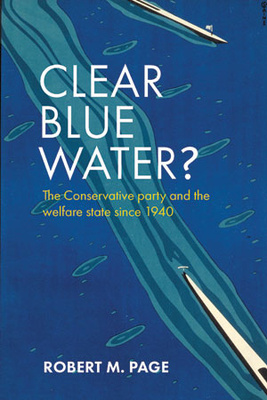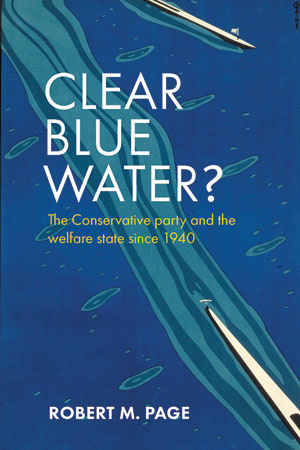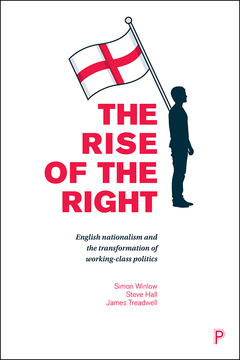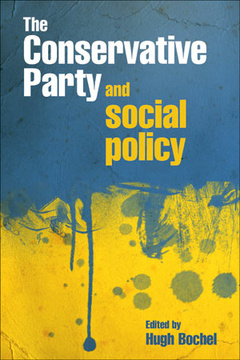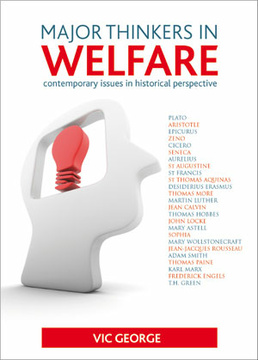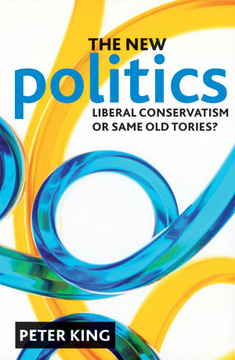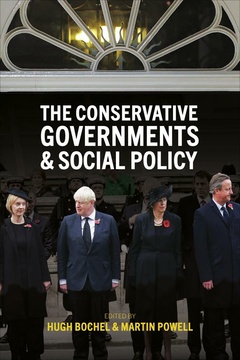Published
Jul 15, 2015Page count
212 pagesISBN
978-1847429865Dimensions
240 x 172 mmImprint
Policy PressPublished
Jun 1, 2016Page count
212 pagesISBN
978-1447334545Imprint
Policy PressPublished
Jun 1, 2016Page count
212 pagesISBN
978-1447334552Imprint
Policy PressHas the modern Conservative Party developed a distinctive approach to the post-war welfare state? In exploring this question, this accessible book takes an authoritative look at Conservative Party policy and practice in the modern era. The book takes as its main starting point the progressive One Nation Conservative (1950-64) perspective, which endeavoured to embrace those features of the welfare state deemed compatible with the party’s underlying 'philosophy'. Attention then shifts to the neo-liberal Conservatives (1974-97), who sought to reverse the forward march of the welfare state on the grounds of its 'harmful’ economic and social effects. Finally, David Cameron’s (2005-present day) 'progressive’ neo-liberal Conservative welfare state strategy is put under the spotlight. The book’s time-defined content and broad historical thread make it a valuable resource for academics and students in social policy and politics as well as social history.
"Fluently written and with credible arguments embracing historical, political and ideological perspectives." Political Studies Review
"Page has written an important book which combines the history of British Conservative ideas on the welfare state with critical policy analysis. An invaluable source for scholars and students alike." Matt Beech, University of Hull
"A thorough and detailed survey that will be of considerable benefit to anyone trying to understand the background to the present government's social policy agenda." Citizen's Income
"Page helps foster a deeper understanding of the issues at stake and succeeds in dispelling some widely-held myths about Conservative policy in this area." Cercles Reviews
"A comprehensive, informative and accessible account of the Conservative Party’s relationship with the welfare state in the period from Churchill to Cameron." Hugh Bochel, University of Lincoln
"An excellent book tracing the underlying political ideology and strategy of contemporary Conservatism towards the welfare state and placing it in a broader historical context. I recommend this book to academics, students and policymakers alike." Kevin Hickson, University of Liverpool
"[Page} has produced a valuable synthesis that should be on the shelf (or the library shelf) of anyone interested in the Tories, in social policy, and in post-war political history" Twentieth Century British History
Robert M Page is Reader in Democratic Socialism and Social Policy at the University of Birmingham. He has written extensively on the post-war British welfare state.
Conservativism, the 'modern' Conservative Party and the welfare state
From war to peace: the Conservatives adn the welfare state in the 1940s
Towards a One Nation Conservative welfare state? The Conservatives and the welfare state, 1950-64
The Heath 'interregnum': modern technocratic Conservativism and the welfare state, 1965-74
The Conservative (counter-) revolution: neo-liberal Conservatism and the welfare state, 1974-97
Progressive neo-liberal Conservatism and the welfare state, 2005 - 2015
Epilogue: The Conservative Party and the welfare state: clear blue water?







